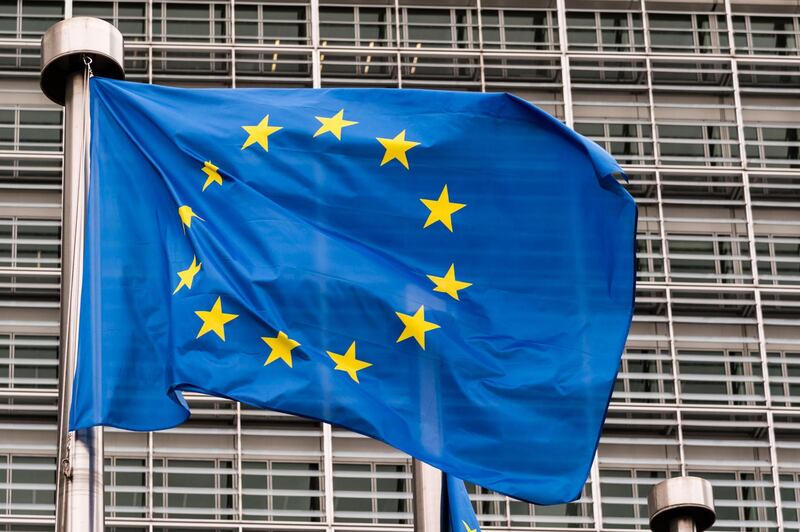The US is weighing new tariffs on $3.1 billion (Dh11.3bn) of exports from France, Germany, Spain and the UK, adding to an arsenal the Trump administration is threatening to use against Europe that could spiral into a wider transatlantic trade fight later this summer.
The US trade representative wants to impose new tariffs on European exports like olives and trucks, while increasing duties on products including aircrafts, cheese and yoghurt, according to a notice published on late Tuesday evening. The statement lays out a month-long public comment period ending on July 26.
The Euro Stoxx 50 index, which tracks leading companies in the euro area, extended a decline on the news, slumping 2 per cent at 11:26am in Brussels. The UK’s FTSE 100 hit intraday lows.
If the US follows through with its plan, it could hammer European luxury brands like Givenchy and Hermes, which produce leather goods. LVMH Moet Hennessy Louis Vuitton would be particularly vulnerable because it produces a wide array of these products.
This is not the first time that the US and Europe have locked horns on tariffs.
A couple of years ago, the Geneva-based World Trade Organisation said both the US and the EU were guilty of illegally supporting their respective aircraft industries.
In October, the US gained the upper hand when the WTO authorised President Donald Trump to retaliate against $7.5bn worth of EU exports in response to Europe’s illegal subsidies to Airbus. Next month, the WTO is expected to deliver a retaliation award to the EU in its separate but related case against US subsidies to Boeing.
In the meantime, Mr Trump’s top trade official, Robert Lighthizer, has sought to increase pressure on the Europeans by deploying a particularly damaging tactic called “carousel retaliation”, whereby a country periodically shifts tariffs on different groups of goods.
Tuesday’s USTR notice is a reminder that the US’s tariff targets may shift or be subject to higher levies – a strategy that spreads the sanctions pain across an array of industries, creating uncertainty for businesses and headaches for exporters and importers alike.
Earlier this year, the US deployed its carousel retaliation strategy to increase tariffs on exports of Airbus aircraft and parts from 10 to 15 per cent. To date the US has only deployed tariffs on goods worth about half of its permitted retaliation levels.
Mr Lighthizer said his goal in increasing tariffs is to persuade the EU to agree to a settlement. But talks between the US and the EU have floundered this year, and now the EU is preparing to retaliate with new tariffs against an array of politically sensitive US industries.
“The US has stepped back from the settlement talks in recent weeks,” EU Trade commissioner Phil Hogan told European trade ministers on June 9. “If this remains the case, the EU will have little choice but to exercise its retaliation rights and impose our own sanctions.”
The EU has asked the WTO to give it the green light to place levies on as much as $11.2bn worth of US exports to Europe in retaliation for America’s illegal subsidies to Boeing. The Trump administration argues the WTO award will be much smaller, with only about $300 million at stake.
Regardless of the level of the WTO award, the US is now preparing to hit more European products as a means to dissuade the EU from retaliating at all.
“There is no valid basis for the EU to retaliate against any US goods,” Mr Lighthizer said last month. “We will continue to press the EU to negotiate a resolution that respects the WTO’s findings.”






